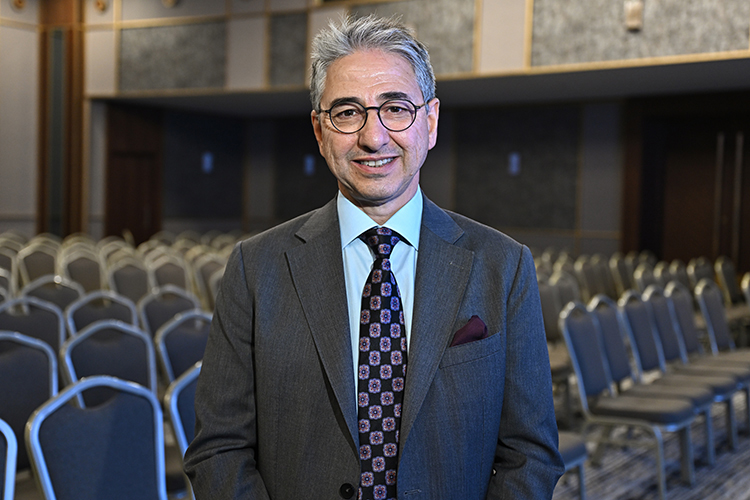
POYD President Hakan Saatçioğlu: "If the rules are set correctly and guests are made aware, waste in All-Inclusive packages will decrease by 85%."
19.08.2025
Hakan Saatçioğlu, President of the Professional Hoteliers Association (POYD), commented on recent media reports that two strong traditions in Turkey's tourism, the mixed breakfast and the open buffet system, will be abolished. He stated, "If the rules are set correctly and guests are made aware, waste in All-Inclusive packages will decrease by 85%."
President Saatçioğlu's statements are as follows: "Just a few days ago, an international study revealed that Turkey's mixed breakfast is the best breakfast in the world. This flattering news, followed immediately by news that the mixed breakfast will be banned, creates an interesting paradox. Shouldn't we, instead of banning this cultural value, make more of an effort to promote it to the world?
The biggest criticism of mixed breakfasts is waste. However, the solution isn't prohibition, but rather standards and portion adjustments. For example, a mixed breakfast should be defined as serving at least two people; if there are four people, If there are two guests, a mixed breakfast for five should be provided. Items missing from the table should be replenished based on demand. This will prevent both waste and unnecessary costs.
The same approach applies to open buffets within the All-Inclusive system. Yes, waste in open buffets has reached serious levels. However, the cause of this waste is not product variety; it is unconscious consumption and the lack of RULES/DEFINITIONS within the All-Inclusive system.
If guests knew they could pay extra if they spent more than reasonable amounts, a change in guest behavior of up to 85% could be achieved. In other words, the issue isn't variety, but creating a culture of regulated and conscious consumption.
Why is waste much more reasonable among our visitors from Europe, while we can't achieve the same with our other visitors?
It's important to remember that guests in the All-Inclusive system want to see value for their money and benefit from it. Given that Turkey has recently been perceived as an "expensive destination," we should also consider banning open buffets and offering all-a-la-carte options within the All-Inclusive system. Switching to a service is unwise, both for our tourism economy and for guest satisfaction. At POYD, we've been keeping this issue on the agenda for two years. A simple definition would make a big difference: 'All-inclusive includes everything you eat and drink; however, the waste you buy from the buffet and leave unconsumed is not included in the all-inclusive package.' This definition both reduces unnecessary disputes between operators and guests and prevents wasteful scenes that alienate our employees from their profession.
Furthermore, clearing away guests' wasted food and drinks devalues our tourism profession. Young tourism professionals just starting out are forced to simultaneously clear away empty plates and unintentionally discarded food waste. This demoralizes service personnel and demotivates them.
Removing open buffets from mass tourism establishments and switching entirely to à la carte service is not only impractical but will also significantly reduce guest satisfaction. In hotels with a capacity of 1000-1500 people, hosting guests from over 100 countries and serving three meals a day, serving every meal à la carte within two hours is nearly impossible, both operationally and physically, and from a personnel perspective.
Our recommendation is clear: Instead of banning food, let's improve the system with the right rules and standards. Under the leadership of our Ministry of Culture and Tourism, the "Waste-Sensitive" initiative A "Hotel Certificate" program could be implemented. Hotels holding this certification inform their guests before they arrive and on-site, as well as provide waste prevention training to their staff. This helps prevent waste while maintaining guest satisfaction and employee motivation.
